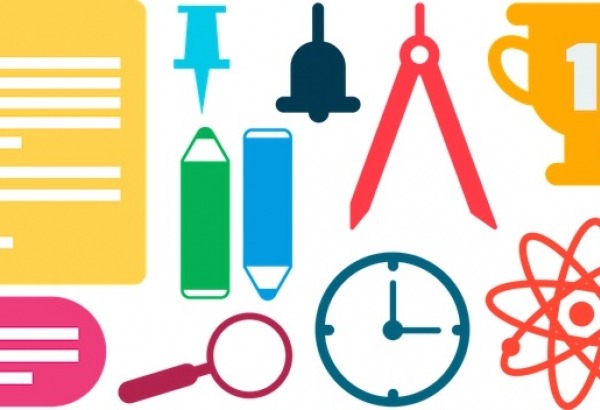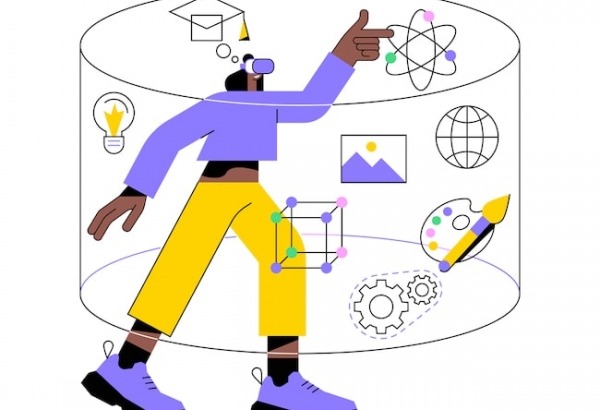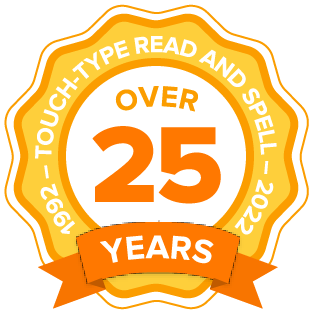Jobs for people with Down syndrome

A growing number of adults with Down syndrome enjoy greater independence and enhanced skills development today thanks in part to employment opportunities. Having a job builds confidence for people with Down syndrome, whether it is a paid or volunteer position.
It’s also a good way to increase awareness of learning difficulties among the general public, especially when it comes to showing the many talents these very capable and special individuals possess.
From working as baristas in community coffee shops to taking positions in national chains, handling the front desk at offices, or working with their hands in the great outdoors, people with Down syndrome can thrive in a wide range of positions when they have the support, drive and skills they need to perform the job.
While much of the work they do is part-time, ranging from 4-8 hours a week, some individuals have more than one part-time job and 3% work full-time. In the United States, a recent national survey showed that 56% of people with Down syndrome who are working are in paid positions.
They may be in different kinds of work including supported employment positions in which a job coach eases the transition to a working environment, sheltered employment in which most of the other workers also have Down syndrome or competitive employment where they are the only individual with a learning difficulty in their place of work. An additional 3% are self-employed.
In the UK it is estimated that 8,000 of the 40,000 people living with Down syndrome are in work. However, the number of people who want to find a job is much greater. The main challenge they face is getting enough work experience. This makes volunteering opportunities attractive as they can provide people with Down syndrome with the step-by-step training and coaching they need to build confidence and find employment that suits their interests and skills.
Additional challenges arrive when it comes to convincing managers that adults with cognitive impairment are suited for their company. Programs like WorkFit exist to teach managers how to support staff with learning difficulties and create structured and process-driven roles in which they can excel.
What is Down syndrome?
Down syndrome is a genetic condition that results when an individual is born with an extra copy of the 21st chromosome. It comes with characteristic physical traits such as distinct facial features and short stature and babies may need health interventions including surgeries to address heart, hearing or eyesight issues.
People with Down syndrome typically experience some degree of cognitive impairment. Nonetheless, no two individuals will have the same developmental pattern and IQs can vary widely. Emotional understanding is not affected and people with Down syndrome are often known for their loving and sensitive nature.
Thanks to advances in medical technology and a greater societal understanding of the condition, many children and adults lead rich, independent and fulfilling lives as part of their local community.

Education
Growing up with learning difficulties no longer means children are deprived of a robust education or forced to attend special institutions. Many kids go to local schools and some even go on to graduate university! It all depends on the individual’s ability. Parents can begin teaching their children to read as early as age 2. Language delays may be present, particularly because hearing impairments are common, and children can benefit from an enhanced emphasis on phonics in early reading instruction.
Computer technology is a particularly useful tool because it allows for repetition and can provide the kind of automatized feedback and step-by-step learning that individuals with Down syndrome benefit from. Learn more in teaching children with Down syndrome how to read.
In addition to academic training, schools provide rich learning environments that prepare young-adults for future employment. They are also important for developing social skills as well as fostering creative talents via introducing sport, music and art activities.
It’s important for parents and educators to foster positive self-esteem in children with Down syndrome so they develop a healthy self-image and can gain the confidence they need to be successful. Educating them about their condition and providing examples of other people with learning difficulties who have achieved success can help.
For example, a Down syndrome model was recently signed to a major modeling contract and now appears in fashion shows. TV advertisements for certain clothing chains now feature children with the condition. A man in a Massachusetts town was in the newspaper after he celebrated 30 years of employment at McDonald's.
A quick scan of the Internet will even bring up stories of people who run their own businesses, from cake-baking to t-shirt production. There are beauticians, gardeners, performers and secretaries with Down syndrome. Encouraging young-adults and introducing them to success stories drives motivation.
Read more in encouraging individuals with learning disabilities.
Different kinds of employment
The kind of work undertaken by people with Down syndrome varies from person to person. Some work in restaurants as greeters, others may bag groceries at the supermarket or answer phones at an office. There are celebrated artists with the condition, including painters, singers, dancers and musicians. In all cases adequate job training and supervision is crucial.
So is choosing employment that offers a predictable schedule or is task driven. Product assembly, landscape and gardening work, janitorial employment, therapy and charitable foundations are a good place to start.
Many major brands go out of their way to hire people with Down syndrome including Lowes, Ikea, Walgreens and Stop and Shop. For more information on employment opportunities in your area, get in touch with your local community support groups and see which resources are available to you.

Training and skills development
With the right support, achieving success at school and finding employment as an adult is increasingly within reach for individuals with Down syndrome. This support often includes training that can be enhanced thanks to technology and computer programs. One skill that is useful for many in this day and age is learning how to type. That’s because it not only opens up job opportunities, but the process also reinforces phonics skills through multi-sensory learning.
The Touch-type Read and Spell program is particularly beneficial for individuals with learning difficulties because it breaks the task down into small incremental steps which can be repeated as many times as is necessary.
Built-in feedback builds confidence and measured success over a period of time helps increase motivation to learn. The TTRS program can also be useful for individuals with dyslexia, dyspraxia, dysgraphia, ADHD, autism or apraxia of speech as well as those whose literacy has suffered because they have experienced gaps in their education.
Typing is an excellent practical skill for an individual with Down syndrome to list on a Resume or CV and can even open up new opportunities for employment.
Learn more in interesting facts concerning Down syndrome.
For learners with Down syndrome
TTRS is a program designed to get children and adults with Down syndrome touch-typing, with additional support for reading and spelling.
Chris Freeman
TTRS has a solution for you
An award-winning, multi-sensory course that teaches typing, reading and spelling
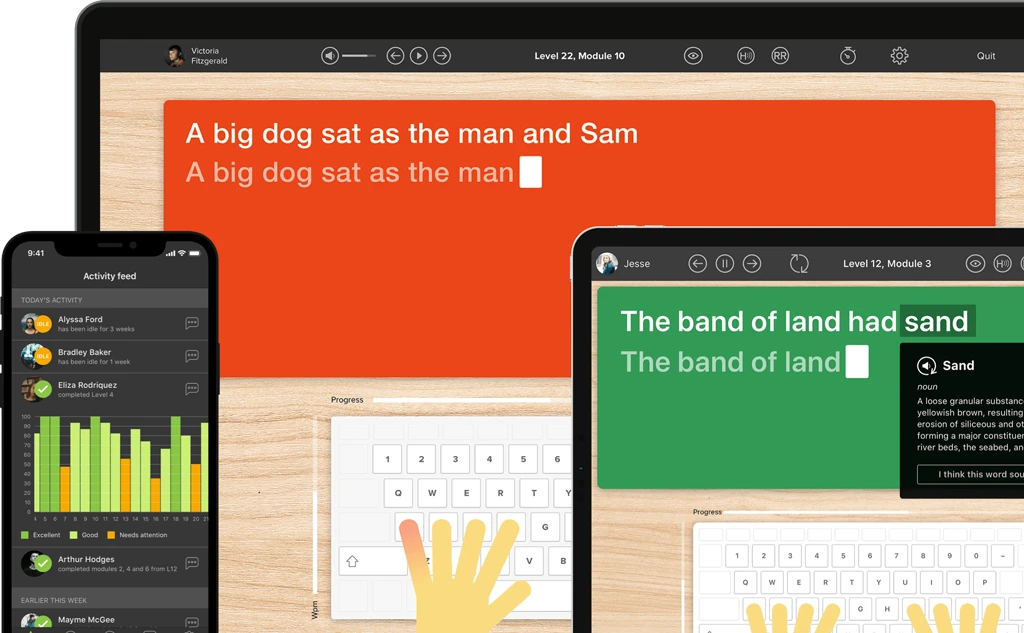
How does TTRS work?
Developed in line with language and education research
Teaches typing using a multi-sensory approach
The course is modular in design and easy to navigate
Includes school and personal interest subjects
Positive feedback and positive reinforcement
Reporting features help you monitor usage and progress







